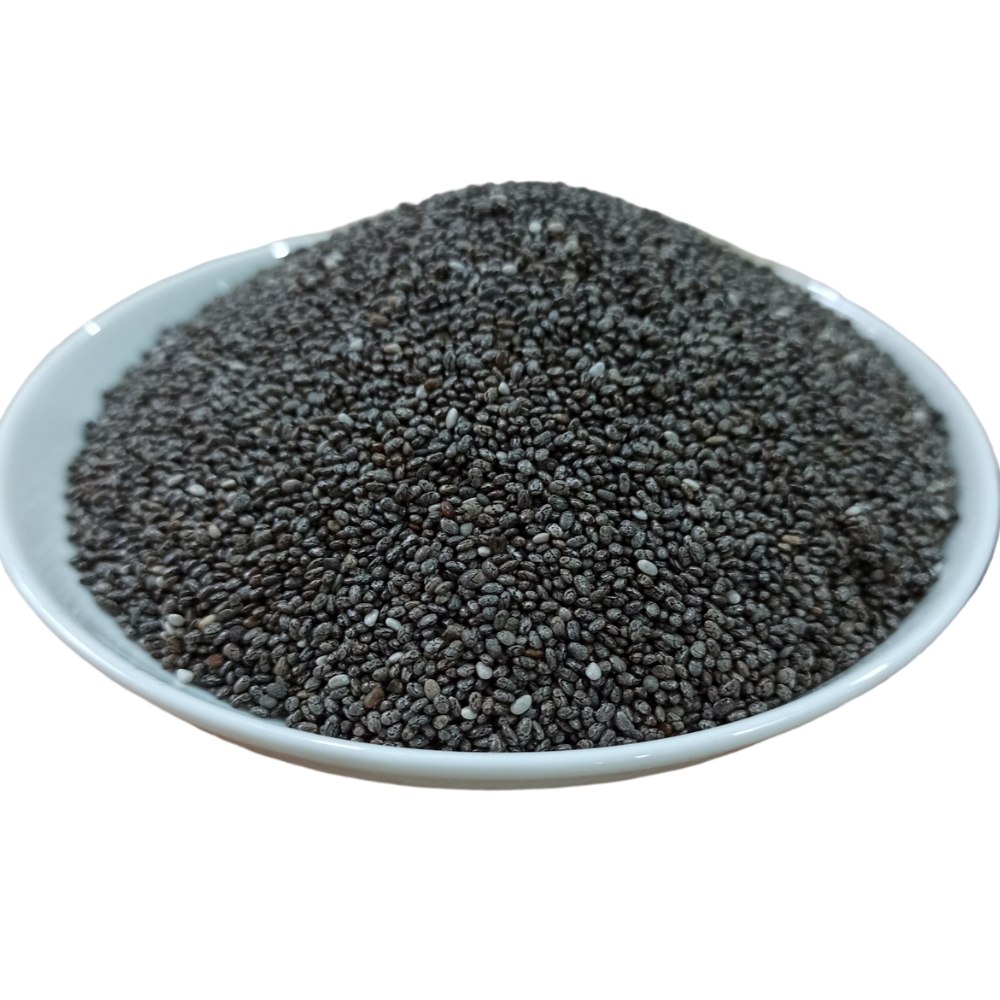
As the trend towards healthy living and natural foods grows, Vietnamese chia seeds (Salvia hispanica) and basil seeds (Ocimum basilicum) have become sought-after “superfoods” worldwide. With their ideal climate conditions, Vietnam is producing and exporting these two types of seeds with high quality, affirming the position of Vietnamese agriculture on the global map.
1. Vietnamese Chia Seeds: A Nutritional Powerhouse
Chia seeds, successfully cultivated in Vietnam from imported varieties, particularly in the Central Highlands, offer quality on par with products from famous countries.
- Nutritional Value: Chia seeds are a rich source of Omega-3 fatty acids, soluble fiber, protein, and essential minerals like calcium, magnesium, and iron. Just one small spoonful a day provides enough energy and nutrition for the body.
- Versatile Applications: Chia seeds can be mixed with water, milk, juice, or sprinkled on salads, yogurt, and cereals. When soaked, chia seeds swell into a soft gel, helping to create a feeling of fullness, supporting weight loss, and improving digestion.

2. Vietnamese Basil Seeds: A Valuable Traditional Herb in Cuisine
Basil seeds, a traditional Vietnamese ingredient, are known not only as a refreshing beverage ingredient but also for their many health benefits.
- Distinctive Features: Basil seeds are small and black. When soaked in water, they expand to form a white membrane around the seed, resembling a frog’s eye (hence their alternate name, “frog eye seeds”). They have a cooling property, are odorless and tasteless, and can be easily combined with many types of drinks.
- Health Benefits: According to traditional medicine, basil seeds have a cooling and detoxifying effect, supporting the treatment of digestive issues and soothing coughs.
- Traditional and Modern Applications: Basil seeds are an essential ingredient in traditional Vietnamese desserts like chè and sương sáo. Today, they are also widely used in modern refreshing beverages, smoothies, and functional food products.

3. Chia Seeds vs. Basil Seeds: A Comparison
Despite their similar appearance and uses, chia seeds and basil seeds have distinct characteristics.
| Criterion | Chia Seeds | Basil Seeds |
| Origin | From the mint family (Salvia hispanica), native to Mexico and Guatemala. | From the basil family (Ocimum basilicum), native to India. |
| Seed Appearance | Oval-shaped, small, with white, gray, and black colors. | Round, small, and solid black. |
| When Soaked | Swell slowly, forming a smooth, translucent gel layer. | Swell quickly, forming a white, opaque gel layer around the seed. |
| Nutritional Content | Rich in Omega-3, fiber, protein, vitamins, and minerals. | Rich in fiber, with a cooling property. |
| Flavor | Odorless and tasteless. | Odorless and tasteless. |
| Applications | Used in food, drinks, baked goods, and functional foods. | Used in drinks, sweet soups, and desserts. |
4. Production Process and Export Potential
Both Vietnamese chia seeds and basil seeds are produced under a strict process to meet export standards.
- Sustainable Production: These two types of seeds are grown using a clean agricultural model, minimizing the use of chemicals. They are harvested, cleaned, and dried with modern technology, ensuring they are free of impurities and have an ideal moisture content.
- Potential Markets: Markets with a growing trend towards organic, healthy, and convenient products, such as Japan, South Korea, the U.S., and Europe, are potential customers. Vietnamese chia seeds and basil seeds have a competitive advantage in both price and quality.
5. Challenges and Sustainable Development Solutions
To maintain and grow their position in the international market, the Vietnamese chia and basil seed industries need to:
- Quality Control: Comply with international food safety standards like GlobalGAP and VietGAP and meet the phytosanitary requirements of each country.
- Brand Building: Focus on promoting the story of clean, natural products and their health benefits to create a clear market differentiation.
Vietnamese chia seeds and basil seeds are more than just agricultural products; they are a story of diligence, refinement, and the aspiration to reach global markets. With continuous effort, these “precious seeds” will surely continue to win over consumers worldwide.
Other articles:
Other agricultural products:


